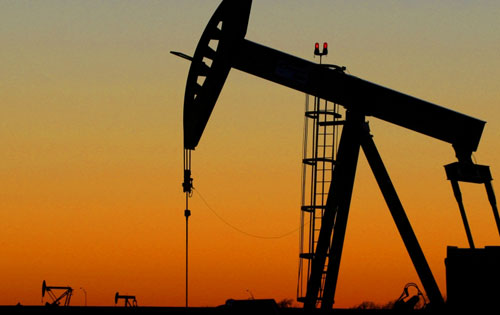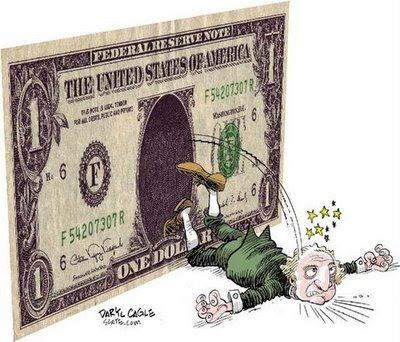Among all the companies fighting to grab a piece of the brightest star in computing--the smartphone--Google seems the least interested in taking the spoils.
Android, Google's mobile operating system, doesn't generate revenue for the company, and likely never will--at least in the direct sense. But Andy Rubin, Google's director of mobile platforms, thinks Google and the world will benefit from any device created with the intent of getting more people onto the Internet, and isn't shy about explaining why the open-source approach chosen for Android holds the most promise of reaching that goal.
Android made its debut in 2007, a few months after another computer with designs on improving the Internet experience on a phone--the
iPhone--hit the streets as perhaps the most hyped gadget ever. Buzz has been slower to build around Android, but that could start to change
as additional phones arrive that have a bit more pizazz than the
G1, the world's first Android phone released last October.
Ahead of next week's
Google I/O Developer Conference, where Rubin is expected to discuss future Android phones and goals for the software, he sat down with CNET News to review Google's progress thus far and share his impressions of what makes Android unique.
Q: How do you reconcile the goals of staying open with the need to offer carriers their own experience and the compatibility problems that may come as a part of that?Rubin: Traditionally what's happened is the burden has been on the (phone makers) to be systems integrators. And what you get is kind of a lowest common denominator of functionality and usability because the software was actually developed by multiple parties, and nobody was really thinking holistically about the user experience.
It's (about) how do people expect these products to perform, and what are the various paces that a consumer will put these products through? No one company was thinking about that.
And so a huge benefit to this open platform is that it's complete, it's basically everything you need to build a phone. Sometimes the reason things fragment is because the platform is incomplete and people need to fill in the pieces. And when you fill in the pieces, you inherently have incompatibility.
It is possible to have a completely different user interface with a completely different look and feel but still be compatible. And that will be demonstrated.
There will be a couple of launches; we've generated a lot of interest in China. The use cases in China are slightly different in the U.S.; typically in China, because of the Asian input, people prefer a pen-based interface rather than a capacitive-touch based interface because they expect a stylus to be able to draw the complex characters. So the use case has completely changed but we have achieved compatibility.
How did the goal of Android evolve after it was brought into Google?Rubin: The goal was pretty much the same, the business model obviously changed. Google's business model is deep into advertising, and so for Google this is purely a scale of the business, we just want to reach more people, and hopefully they'll use Google and we'll get the upside of the advertising revenue.
By the way, we're confident enough in our advertising business and our ability to help people find information that we don't somehow demand they use Google. If somebody wants to use Android to build a Yahoo phone, great.
Did you ever consider doing a phone? A Google phone?Rubin: Yeah...I mean, it's funny, if you build one phone...I'd much rather be the guy that does a platform that's capable of running on multiple companies' phones than just focusing on a single product.
A single product is going to have, eventually, limitations. Even if that was two products that's going to have limitations. But if it's a hundred products, now we're getting somewhere, to the scale at which Google thinks people want to access information.
Getting back to business models, Google has a great business model around advertising, and there's a natural connection between open source and the advertising business model. Open source is basically a distribution strategy, it's completely eliminating the barrier to entry for adoption.
When Android was a start-up company, it was always a razor/razor blade business. The razor, the free thing, was the open-source operating system. In Android's original business model, the blades were basically provisioning systems that we sold to wireless carriers that had hooks into the open-source operating system. That was an unproven business model, I would say, and certainly the feedback I got when we were going for venture financing was that it was an unproven business model.
I was willing to give it a go, but then Larry and Sergey and Eric came along and said, "it's much more aligned with Google's core business and Google's business model, and you'll have a much easier time executing within Google." And retroactively, I agree.
Is this a market share play? Is this something where you want to conquer the mobile world?Rubin: We look at it first from the scale perspective. The mission here is to organize the world's information and make it universally accessible and relevant. So the accessible part: think of a world in which you are somehow prevented from accessing the information you want. When I go to a hotel room and pay the $19.95 to get on the Internet and they have some firewall that doesn't let me get to my Exchange server, it makes me berserk.
Google doesn't sell Android, but hopes to encourage mobile Internet use to drive Web searches--and ads.(Credit: Stephen Shankland/CNET)
I look at things--and Google looks at things--in (terms of) how could the landscape change in such a way that consumers who want to access Google services can't?
In that honest goal of not having consumers being blocked and allowing them to access information, it helps our competitors as well. What we don't want to do is disadvantage anybody by being the only person; we don't want to create any kind of separate structure where people can only access Google. And this is the definition of openness: it's not just open source, it's the freedom to get the information that you're actually looking for.
Why is this approach better what Apple or Palm is doing where they control the whole device?Rubin: Controlling the whole device is great, (but) we're talking about 4 billion handsets. When you control the whole device the ability to innovate rapidly is pretty limited when it's coming from a single vendor.
You can have spurts of innovation. You can nail the enterprise, nail certain interface techniques, or you can nail the Web-in-the-handset business, but you can't do everything. You're always going to be in some niche.
What we're talking about is getting out of a niche and giving people access to the Internet in the way they expect the Internet to be accessed. I don't want to create some derivative of the Internet, I don't want to just take a slice of the Internet, I don't want to be in the corner somewhere with some dumbed-down version of the Internet, I want to be on the Internet.
Even if that comes at the cost of compatibility or UI advances? If you're going to be the Everyman phone, you're going to have to make some sacrifices at some point, right?Rubin: I think that's yet to be seen. I think we've done a pretty good job. Again, we're talking about a clean slate technology that didn't exist a few years ago. So I'm actually thinking this could be a revolution.
Remember people used to trumpet "write once, run everywhere"? Well, I think we're actually there. I think when we start talking about the possibility of exploring things like Netbooks and
car navigation systems, you have potentially different processor architecture types. You have Intel, you have ARM, set-top boxes have
MIPS.
We have all sorts of different processor architectures, and the guys who are steeped in legacy have trouble addressing those markets with a single solution. I actually think Android is the potential single solution that can address all those markets, and it's new, it's revolutionary. It will change the game.
If this is a revolution, why haven't we seen more of these phones?Rubin: It takes about 18 months to build a phone from end to end. What we wanted to do for our market entry was make sure that we had one successful showcase product to prove that the product was reliable and robust and ready to go. We chose HTC as our partner for that.
The forthcoming Samsung i7500, based on Google's Android(Credit: Samsung)
At the moment we open-sourced, November 7 (2007), that's when a lot of these guys got their hands on it. We're still in that 18-month window of building products, and what you'll see coming up is a whole string of products.
What did you learn from Android 1.0 to 1.5?Rubin: I learned that 1.5 was the product I wished was 1.0. The reason is it's a different business for Google: helping the industry build operating systems for their cell phones.
Because on the Web, you can iterate very quickly, and you can put things out in beta, you can fix bugs literally hourly. On cell phones you're blasting something in a ROM in a device that's in manufacturing where you did just-in-time ordering of all the parts and have inventory risk and everything else. Widgets are literally coming down a factory line, and if software isn't ready by the time they reach the end of the line they're going to drop on the floor and pile up. And that winds up costing a lot of people a lot of money. And if you don't get it right, you're kind of hosed.
What is going to dictate who wins and loses in this market? We all have different things that we may want in a phone. How do you try to be the Everyman phone and try to keep up with what's going on?Rubin: We're trying to be something really unique, and I don't think anybody else is offering this. We put a very focused spotlight on openness, and openness is the means by which you get the product that you want.
Do people care (about openness)? I mean, the industry might care, the partners in the Open Handset Alliance may care, but do consumers?It's an enabler. I'm not on some marketing campaign to educate consumers about what openness means. Actually, if you ask anybody on the street, you're going to get 10 different definitions of openness. The Symbian guys are going to be like "I'm open," and the LiMo guys are going to say "I'm open."
There's probably like a royal flush of openness, where you can lay your cards on the table and say (pointing) "open, open, open, open, open," it's the guy with the most open that's going to win.
I think we're that. I think that we have an open ecosystem, we have an open-source platform, we chose the right license, there are no viral aspects, it's absolutely 100 percent free, it's complete, it's everything you need to build a phone. When you add all that stuff up, all those ingredients, potentially--I think the jury's still out--we can make a really successful product.







